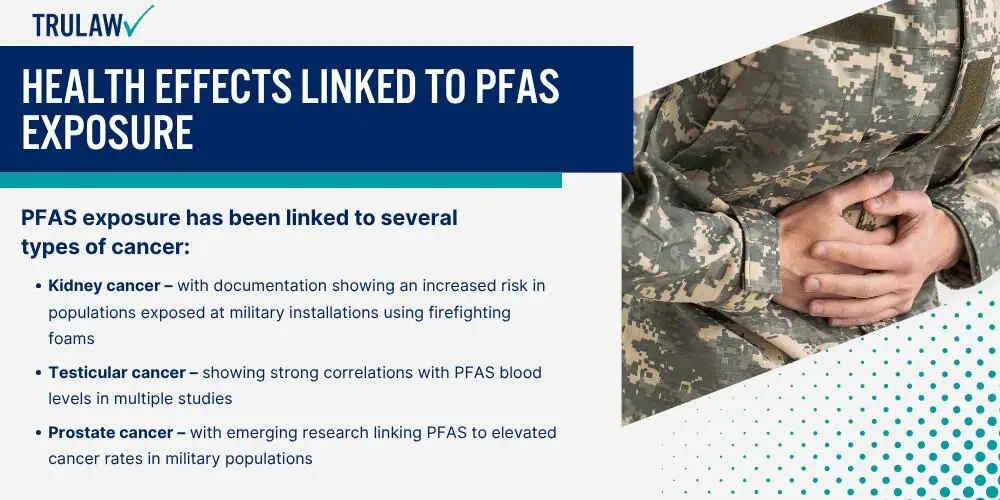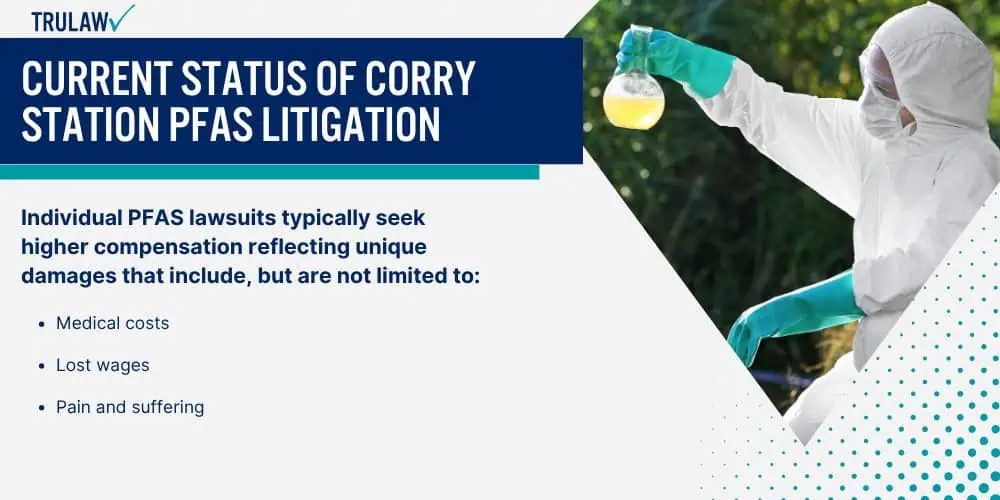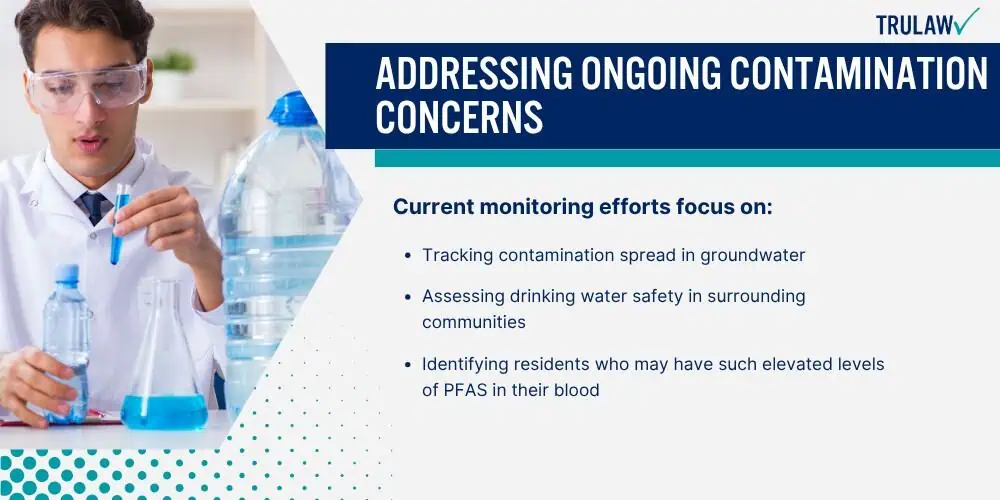Service members and families exposed to PFAS at Corry Station face serious health risks from these harmful substances.
Scientific research documents numerous conditions associated with PFAS exposure – ranging from various cancers to reproductive complications.

These health effects helps affected individuals recognize symptoms and seek appropriate medical care while building their legal cases.
Cancer and PFAS Exposure
Research establishes strong links between PFAS exposure and multiple cancer types.
Studies show individuals with higher PFAS blood levels face substantially increased cancer risks compared to unexposed populations.
PFAS exposure has been linked to several types of cancer:
- Kidney cancer – with documentation showing an increased risk in populations exposed at military installations using firefighting foams
- Testicular cancer – showing strong correlations with PFAS blood levels in multiple studies
- Prostate cancer – with emerging research linking PFAS to elevated cancer rates in military populations
- Pancreatic cancer – showing connections to PFAS exposure in recent epidemiological studies
- Thyroid cancer – particularly papillary thyroid cancer, which accounts for 80-85% of thyroid cancer cases
Recent epidemiological evidence indicates PFAS might be a risk factor for thyroid cancer through mechanisms involving hormonal disruption and cellular damage that promote tumor growth.
Non-Cancer Health Conditions
PFAS exposure affects multiple body systems, causing a range of health problems beyond cancer.
Women face particularly high risks, with studies showing elevated likelihood of thyroid hormone disruption.
PFAS exposure has been associated with several non-cancer health conditions:
- Thyroid disorders – including hypothyroidism and other thyroid function disruptions requiring lifelong treatment
- High cholesterol – with strong correlations between PFAS blood levels and elevated cholesterol, increasing heart disease and stroke risks
- Liver damage – causing enzyme changes and potential liver disease
- Immune system dysfunction – affecting vaccine responses and overall disease resistance
These hazardous substances interfere with normal hormone production, causing metabolic problems and systemic health issues that often require ongoing medical management.
Reproductive and Developmental Effects
Pregnant women exposed to PFAS face risks of serious complications that threaten both maternal and infant health during pregnancy and delivery.
Children exposed to PFAS in utero or through contaminated water experience developmental delays and potential long-term health effects.
Pregnancy complications occur more frequently in PFAS-exposed women, with documented increases in preeclampsia, gestational diabetes, and pregnancy-induced hypertension.
Low birth weight and preterm birth also occur more frequently in PFAS-exposed pregnancies.
Fertility problems affect both men and women exposed to these chemicals, with studies documenting decreased fertility rates across affected populations.
The intergenerational nature of PFAS harm means exposure effects can pass to future generations through genetic and developmental mechanisms.











